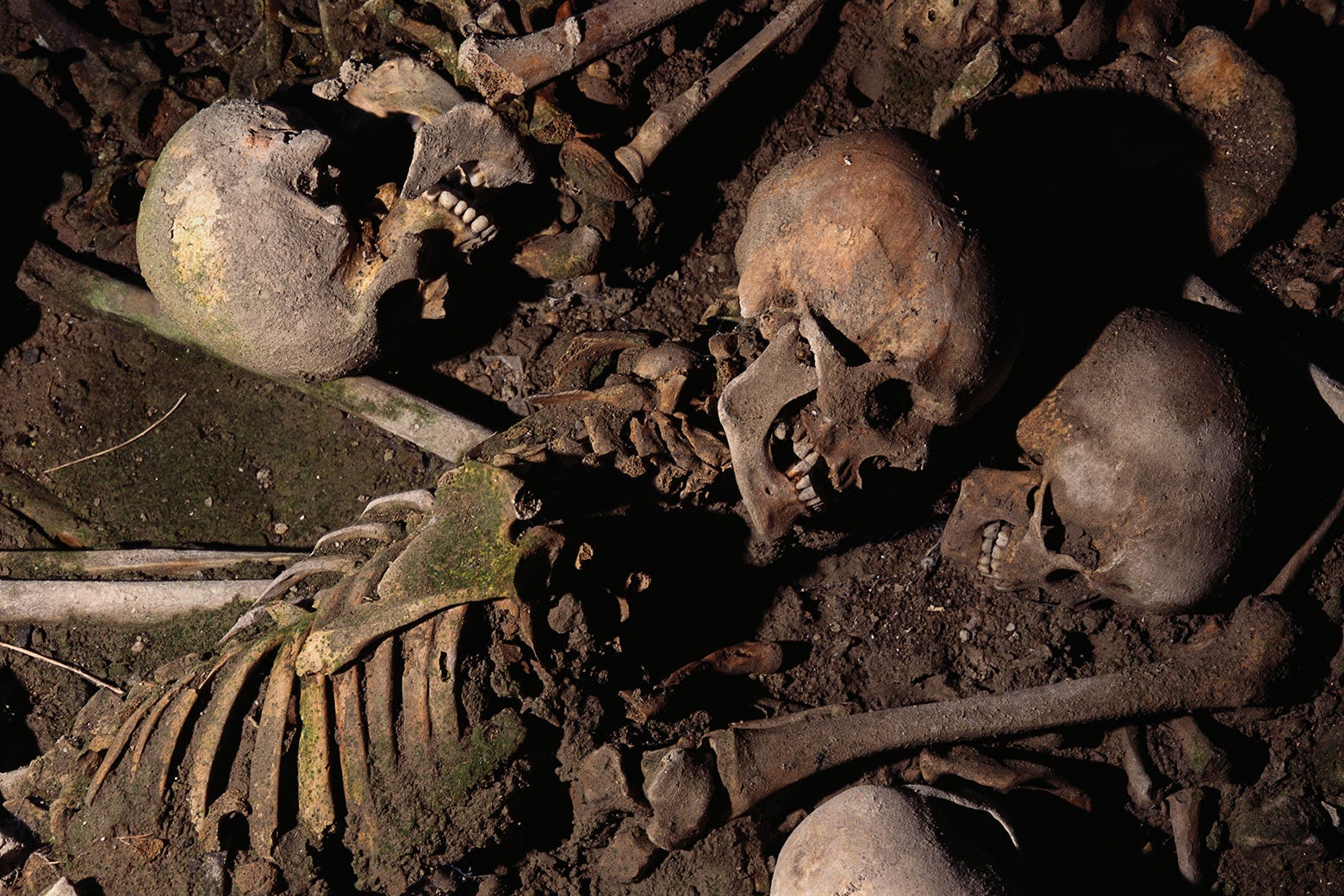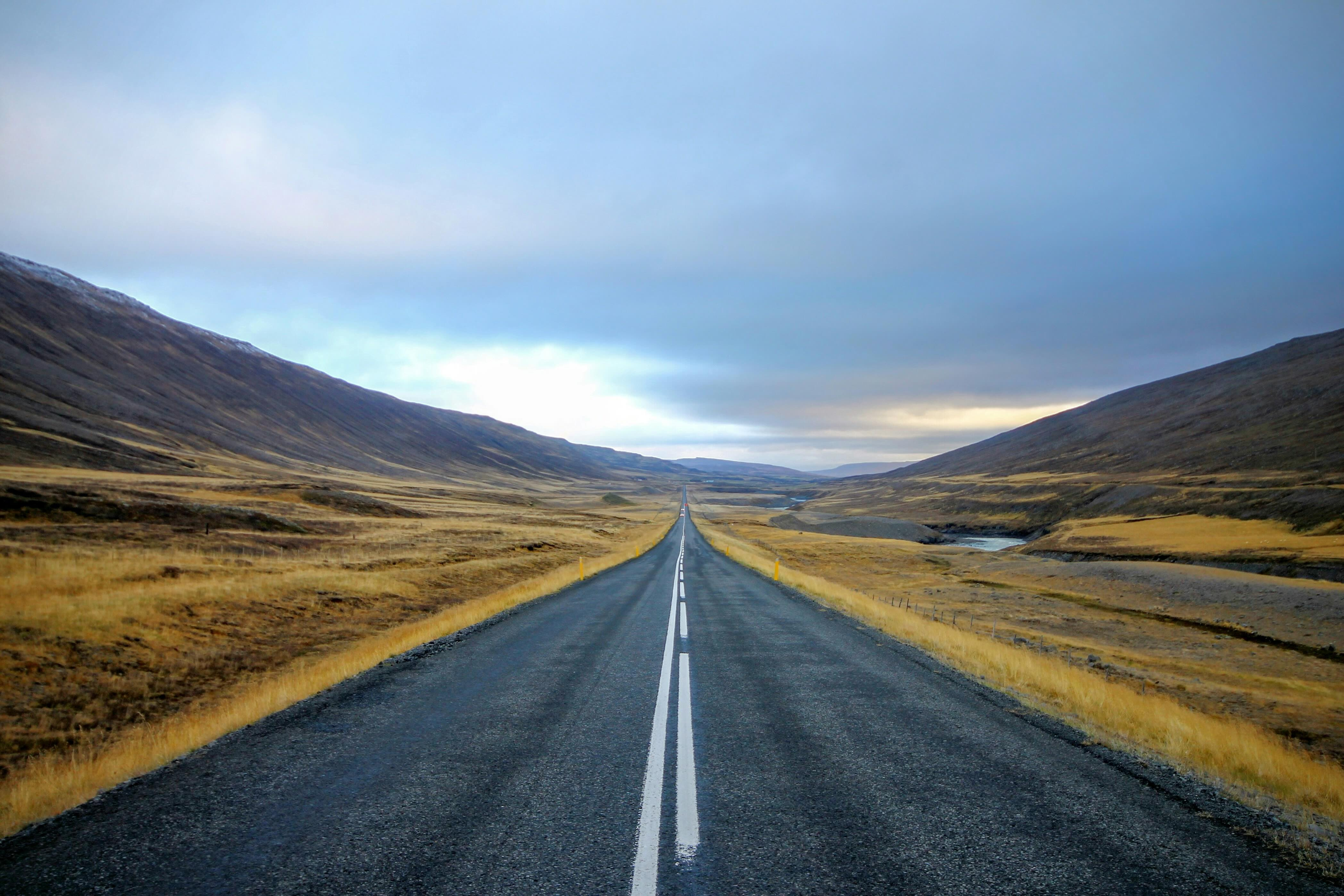Writing a book about apocalypses changed my mind.

Sign up for the Slatest to get the most insightful analysis, criticism, and advice out there, delivered to your inbox daily.
I’ve spent most of my life terrified of climate change and the apocalyptic future it seems destined to create. I was 2 years old when climate scientist James Hansen historically testified before Congress about the “greenhouse effect,” and things haven’t exactly gotten better from there. But humming just underneath my fear of inevitable disasters, rage about our leaders’ decadeslong failure to act, and grief for the version of our planet that was disappearing before my eyes, there used to be a note of dark optimism. Maybe, if it gets bad enough, humans will go extinct, I thought, hopefully.
I relished the idea of human extinction not only because it seemed obvious that the Earth would be better off without us, but because we so richly deserved it. And our species does seem determined to bring this worst-case scenario upon ourselves and our fellow creatures. We know, beyond a shadow of a doubt, that we are destroying the ecosystems we live in and depend on, and all the rest besides. No place, no matter how seemingly human-free, is safe. (See: plastic bags in the Mariana Trench.) These facts do not collectively dissuade us: We’re barreling toward certain catastrophe with ever-increasing speed. I quietly hoped that one day, not too far in the future, we would have to face the ultimate consequence. It seemed as if we must.
Then I spent five years writing a book about catastrophes and cataclysms over the course of human history, from the climate change–fueled collapse of Old Kingdom Egypt to the Black Death. I cover archaeology as a science journalist, and so I ran straight toward my giddy anxiety about our species’ future by calling up researchers who study events like societal collapses, plagues, and earlier periods of extreme and rapid climate change. Much to my surprise—and contrary to almost every bit of apocalyptic pop culture I’d ever consumed—many of these stories contained far more cooperation and reinvention than violence and destruction. The book, out now, is called Apocalypse: How Catastrophe Transformed Our World and Can Forge New Futures. You can see that by the time I made it to working out a subtitle, I’d had to reverse my thinking. I’m now convinced that the end of things as we know them won’t actually mean the end of our species at all.
Yes, the details of the apocalypses I’ve researched throughout history can be tragic, and sometimes horrifying. I’ll never forget the seawall that was supposed to protect a village off the coast of Israel from rising seas as the glaciers of the most recent ice age melted—it’s now been underwater for 7,000 years—or the way the poorest residents of the previously egalitarian city of Harappa, in Pakistan, died violent deaths as a megadrought dragged on. But, far more often, I found that apocalypses brought out people’s creativity and determination. Over and over, I saw how our ancestors tore down the old boundaries, hierarchies, assumptions, and rules that made no sense in a changed and changing world, and how they built futures designed for who they wanted and needed to become to survive.
My change of heart really began, though, when researching the story of a human extinction I thought I knew well—that of Neanderthals around 40,000 years ago. The early paleoanthropologists who discovered and first studied Neanderthal bones had assumed from the start that Neanderthals were inferior to Homo sapiens in myriad ways, including and especially intelligence, and that their distinct skeletal features disqualified them from belonging to the category of human. By the time I became an archaeology writer, many of the most egregious misconceptions about Neanderthals were well on their way to being revised and corrected, in Neanderthals’ favor. The specific Neanderthal skeleton that had convinced scientists our ancient cousins walked hunched over, for example, was revealed to have belonged to not just any Neanderthal, but an elderly Neanderthal man with arthritis. Not only wasn’t he a representative example of the physical abilities of his species—his long life was evidence that his community had taken care of him.
The prejudice I found harder to shake, however, wasn’t about Neanderthals. It was about us, Homo sapiens. Neanderthals may not have been incapable brutes, but that only made our presumed role in their extinction all the more violent and cruel: We outcompeted them, we killed them, we took over the Earth. They weren’t doomed to die because of, well, stereotypically “Neanderthal” qualities; they were smart, capable, and caring, and we were just indiscriminate killers. In a ghastly rehearsal of the horrible effects of anthropogenic climate change on other animals, our runaway success spelled their doom.
But I was wrong: The story is, at the very least, more complicated than that. It turns out that almost every person alive today carries a small portion of Neanderthal DNA in their genome. Very literally, that means that Neanderthals are our ancestors. I started thinking about the kind of relationships between our communities that implied, and what it would have taken to have them come about. The time when Neanderthals disappeared was a period of intense climate instability, and they were already suffering from small group sizes, each trapped in pockets of habitable land during cold snaps and cut off from one another. The known existence of Neanderthal–Homo sapiens babies hints that we started living and working together in a time of hardship. Not everyone, not every group, but enough that our family trees became forever entwined. Is extinction really the right word for people who were desperate, or adventurous, enough to join new communities? Is domination really the right word for the other kinds of people who, in some instances, very likely took them in?
One day, the climate change Neanderthals coped with by joining larger and more diverse human groups may well look tame compared with what’s in store for us. And in the very long term, it’s possible that Earth will become a place largely unlike that which any human has ever inhabited. But we won’t get to a worst-case-scenario, 4-degrees-Celsius temperature jump overnight. We will experience climate change as we already are, and as Neanderthals once did—a slow creep, noticeable in the span of a decadeslong human life. Climate change is worth slowing in any way we possibly can: There will be people who will suffer, just as there were Neanderthals who didn’t survive. The destruction to human life is already happening. But taking the very long, zoomed-out view, our species will adapt. I don’t mean that Homo sapiens’ DNA will survive by way of billionaires holed up in expensive bunkers. That adaptation, I learned, is far more likely to take place by forming new communities, new societies, and new kinds of families than it is by destroying each other in a zero-sum game.
I’ve come to see that expecting—or hoping for—human extinction is actually taking the easy way out. Embracing a vision of the future that counts on the worst version of ourselves, doing the worst things we can imagine, lets us off the hook of doing the hard work of dreaming up and working toward the futures we want. Apocalypse forces us to radically change. But by facing the future with optimism instead of doom, we can transform ourselves into the kinds of people—the kinds of communities—who can survive.
There is only one thing guaranteed to go extinct in the near future, whether by choice or by force, and that’s the kind of society that taught me that humans are nothing but a destructive force in the first place. We live in a society beholden to the apocalyptic philosophy of endless resource extraction. If there’s no tomorrow, you can take and take and take some more. The endless consumption will end, if only because there will be nothing left to consume. We have become convinced that giving that up is tantamount to extinction—or maybe it’s just that we’d rather go extinct than have to give it up. But there are so many ways to be human and, as my Neanderthal ancestors taught me, so many ways to survive. I’m done fantasizing about human extinction. I’d rather spend my time here, at the beginning of the next apocalypse, imagining what it would mean to truly change.
Sign up for Slate's evening newsletter.


![EU ruling: tracking-based advertising [...] across Europe has no legal basis](https://www.iccl.ie/wp-content/uploads/2025/05/TCF.jpg)






 English (US) ·
English (US) ·